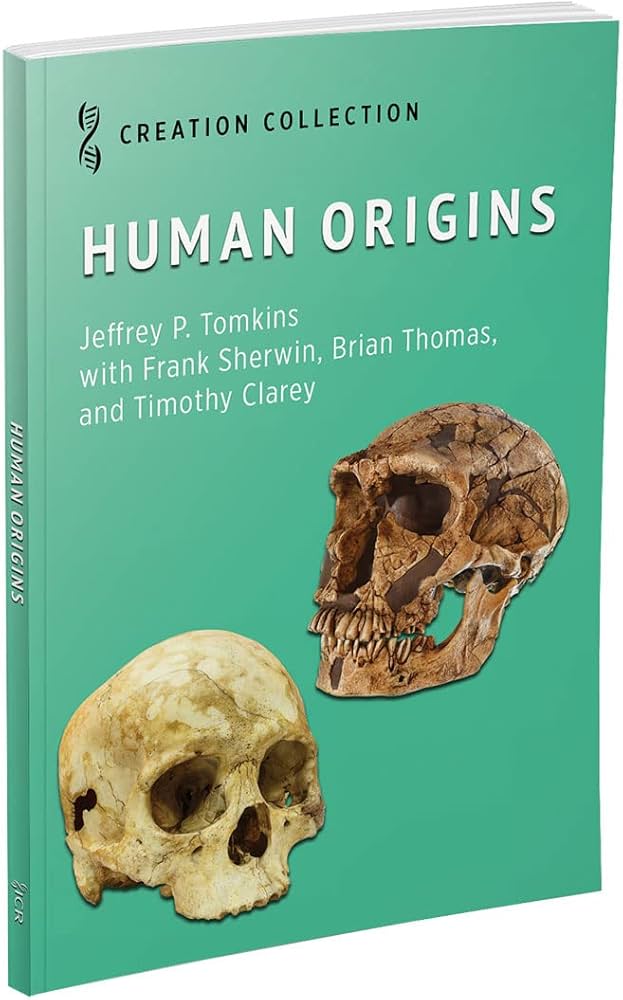Articles » Intermediate
Four times a year, a group of scientists who recently participated in more than one million dollars worth of research into radiometric techniques for estimating the age of rocks, now conduct meetings to communicate the results of their research to the public. These scientists sought a fundamental correction to the usual assumptions that the earth is extremely old. Read the rest of this entry »
As far as our solar system is concerned, astronomers have grown accustomed to expecting the unexpected. Certainly nobody expected liquid water spewing from a small moon of Saturn. Read the rest of this entry »
Dr. John Baumgardner addressed large appreciative crowds at CSAA’s Creation Weekend in October 2016. Following his introductory lecture on Friday evening (“How language powerfully affirms God’s reality”) [described in the previous issue of Dialogue], he continued the next morning with “Mendel’s Accountant: Why Darwinism Fails”. This work resulted from a collaboration with geneticist Dr. John Sandford of Cornell University. Many people in modern society find Darwin’s conclusions extremely appealing: the idea that competition in nature ought to lead to organisms better suited to the environment. While this is reasonable, there are limits to how far this idea can take us. Read the rest of this entry »
Truly there are few things as thrilling as beautiful music. Was it not Shakespeare who wrote “If music be the food of love, play on!” Indeed music not only fosters romance, but it can also make us laugh, or cry, or move with the rhythm, or all of the above at once. There are few things which play on our emotions the way music does. Music however is not a gift unique to people. There are other created creatures with wonderful musical talents. Consider the songbirds for example. Read the rest of this entry »
Sometimes it seems as if information is the most important commodity in our technological age. Information, of course, can be put to good or bad uses. We would all agree, no doubt, that computer viruses are a bad use of information. In that situation, a small piece of computer code (information), once it is inside your computer, can take over the whole operating system, with disastrous results for your interests. Of course such problems are nothing new. The term “virus” comes from natural phenomena that do the very same thing to living cells. Invading information occurs to even the smallest cells, bacteria. In fact, some of the bacteria that most threaten our health, are themselves the victims of invasive information from outside unrelated sources. Consider the case of the infamous Escherischia coli 0157:H7, cause of potentially fatal hamburger disease and in some isolated situations, contaminated water. Read the rest of this entry »
The gecko, famous in some circles in car insurance commercials, is a very unique but average sized lizard. It is well known among biologists for its chirping vocalizations and its sophisticated adhesive toe pads that allow it to climb with ease up smooth vertical surfaces. Actually, the gecko’s ability to run vertically up and down at will has astonished almost everyone who has ever seen them, from Aristotle in the 4th century BC to today. Read the rest of this entry »
Of the five senses which keep us in touch with the world, most of us are particularly aware of eyesight and hearing. Of course we are very thankful for these gifts. One sense that we tend to take for granted however, is the sense of smell. This sense does not seem very complicated or amazing. Nevertheless a little research reveals that our sense of smell is not only exquisitely designed, but it is also poorly understood by biologists. Of all our senses, that of smell seems to be the most complicated. Read the rest of this entry »
Mankind has always been fascinated by the night sky. Indeed it seems that some of the earliest recorded observations from nature were astronomical. For example, in the mid nineteenth century, English archaeologists uncovered a huge library of clay tablets in the palace of Assyrian Emperor Sennecherib of Nineveh, who lived about seven hundred years B.C. Among other clay tablets were detailed records concerning the planet Venus. It’s interesting that the pattern of appearances and absences from the sky is different from what we see today. It’s hard to say if the observations were accurate, but we do know that many of these ancients took their studies very seriously. The wise men in the gospels are a good example. Moreover an earlier document, the book of Job, mentions constellations such as the Pleiades. Read the rest of this entry »
Indeed it was a “tragedy,” opined an editorial in the New York Times (August 13, 1999). Within this context, naturally enough, the editorialist continued “deep sadness is the most sensible response.” The reader might have been pardoned for suspecting the opinion piece was actually written tongue in cheek. The event which called forth this public mourning was none other than a decision by the State of Kansas’ Board of Education. That action of the Board, according to the NY Times, “makes it more likely that many schools will spend less time on evolution …” Oh really? One might have understood if the newspaper had called the action regrettable or ill-advised, but “tragic?” What was going on here? Read the rest of this entry »
The scientist credited with developing a new type of stem cell, says he is very concerned about the process. The ethical problems go far beyond any issues with embryonic stem cells. Read the rest of this entry »
In former generations, some misguided human biologists used to speculate that the various human races were in process of becoming increasingly different. This process, termed “divergence,” is an important component of evolution theory. The idea is that our world population is composed of more or less isolated groups or races of individuals who are quite similar to each other but significantly different from individuals of another race or ethnic background. Since the theory also, of course, includes the idea that our human population has been around at least one million or more years, it would then seem reasonable to assume that humanity had had lots of time to “diverge,” for the races to become more and more different from each other. Of course, if humans have only been around a short time, then racial differences might be merely superficial, more skin deep rather than significant and the human population might not really have “diverged” at all. Read the rest of this entry »
Ever since the efforts of mankind at the tower of Babel, when the people sought to construct their own society based on their own agenda, the search for the perfect man-devised society has continued through the centuries. Indeed, since the advent of Enlightenment thinking in Europe in the eighteenth century, secular mankind has placed a particularly high value on his ability, based on reason alone, to find solutions to social problems. Recently we saw an example of this attitude in the pronouncements of Neil deGrasse Tyson, director of the Hayden Planetarium in New York City. This man is the philosophical successor of Carl Sagan who declared: “The universe is all there is, or was, or ever will be” (in his famous Cosmos series on the history of the universe). More recently Dr. Tyson has hosted a remake of Sagan’s Cosmos series for public television. Read the rest of this entry »
A Reflection
It has been suggested by some people that Christians reacted poorly to the threat posed by Darwin’s book The Origin of Species. Such criticisms miss the point. Influential English society had already abandoned an orthodox Christian faith and they were more than ready for Darwin’s ideas. The situation was similar in the United States. There were no arguments which could have changed these hearers’ minds. They heard what they wanted to hear and ignored what they did not like.
Naturally the first to speak out were prominent clerics. One of the most famous defenders of the faith was Samuel Wilberforce (1805-1873) Bishop of Oxford and son of the famous William Wilberforce who campaigned so long for the emancipation of the slaves in the British Empire. The Wilberforce family was known for their devout faith. Thus in a review of Darwin’s book, Bishop Wilberforce wrote:
Read the rest of this entry »Over the last decade, everything has become digital. We don’t capture images on film anymore, but in digital files. We don’t send letters, we send email messages. We don’t buy books, we download documents to an e-reader. Every organization has a website. Information is at our fingertips, but the whole system is extremely fragile.
The problems with our digital storage technologies are twofold. The data don’t last once they have been laid down and must be transferred to keep them fresh, while the technology for storage and reading keeps changing. An amusing example of this is NASA, which in the early 2000s, found that it was unable to access data from the space program of the 1960s and 1970s. So there they were, scouring internet auction sites to find second hand eight-inch floppy drives which could read their priceless data. Similar events of loss or near loss happen all the time. In 2009 when Yahoo! closed their GeoCities server, a huge amount of data was lost, perhaps “the most amount of history in the shortest amount of time, certainly on purpose, in living memory.” Nobody seemed to notice, but if these had been paper documents which were lost from a library, the outcry would have been anguished indeed. The take home lesson is that as a digital society, we need better systems to store and read data. In view of this, some scientists have turned their attention not to a new system, but to a tried and true system, much better than modern devices. Enter DNA to the discussion. Read the rest of this entry »
Have you ever seen a plant growing inside a cage? We saw such a sight at the Royal Botanic Gardens in Sydney, Australia. It makes you stop and think doesn’t it? Is the cage there to protect the tree or to protect the people? Is this some sort of carnivorous threat or what? The little evergreen tree inside the cage is actually a very non-threatening 50 cm tall. The cage is there to prevent anyone from running off with the rarest known tree species on earth. The existence of this highly unusual tree, known as the Wollemi Pine, was just discovered in late 1994. Scientists are still dancing with delight. Read the rest of this entry »











